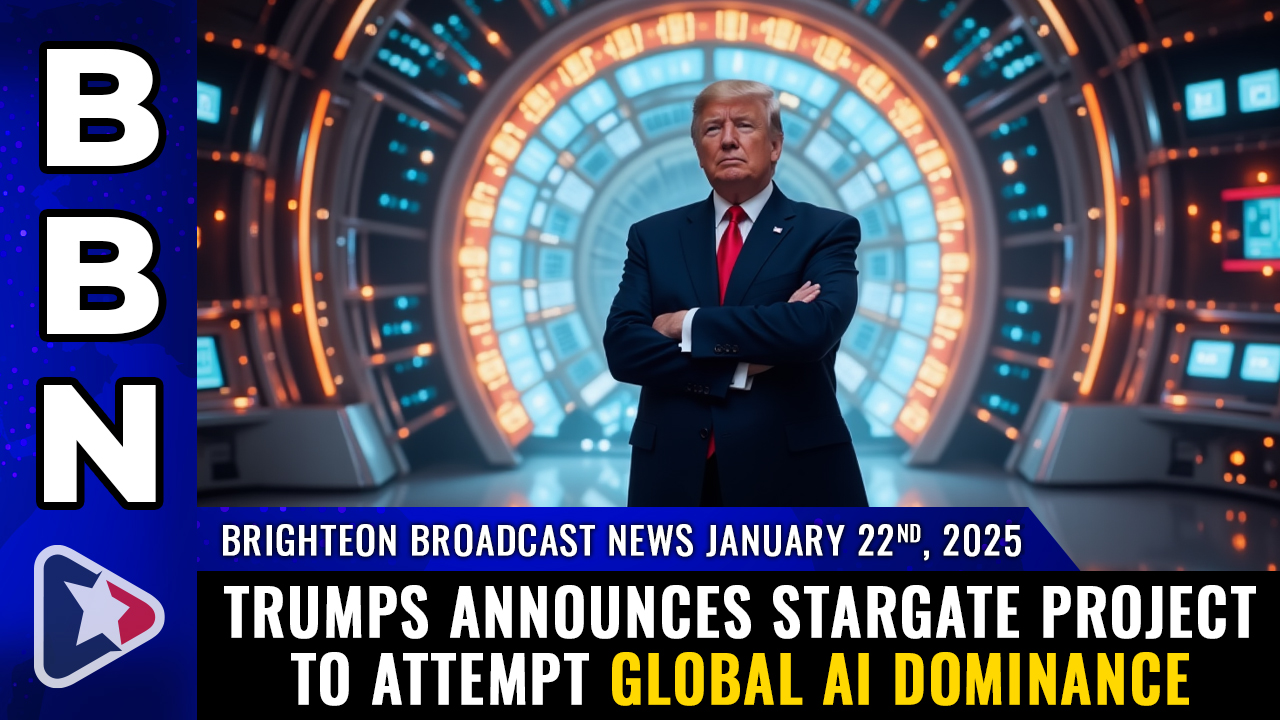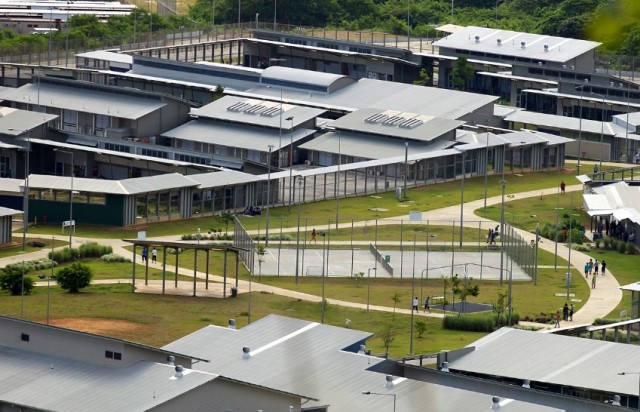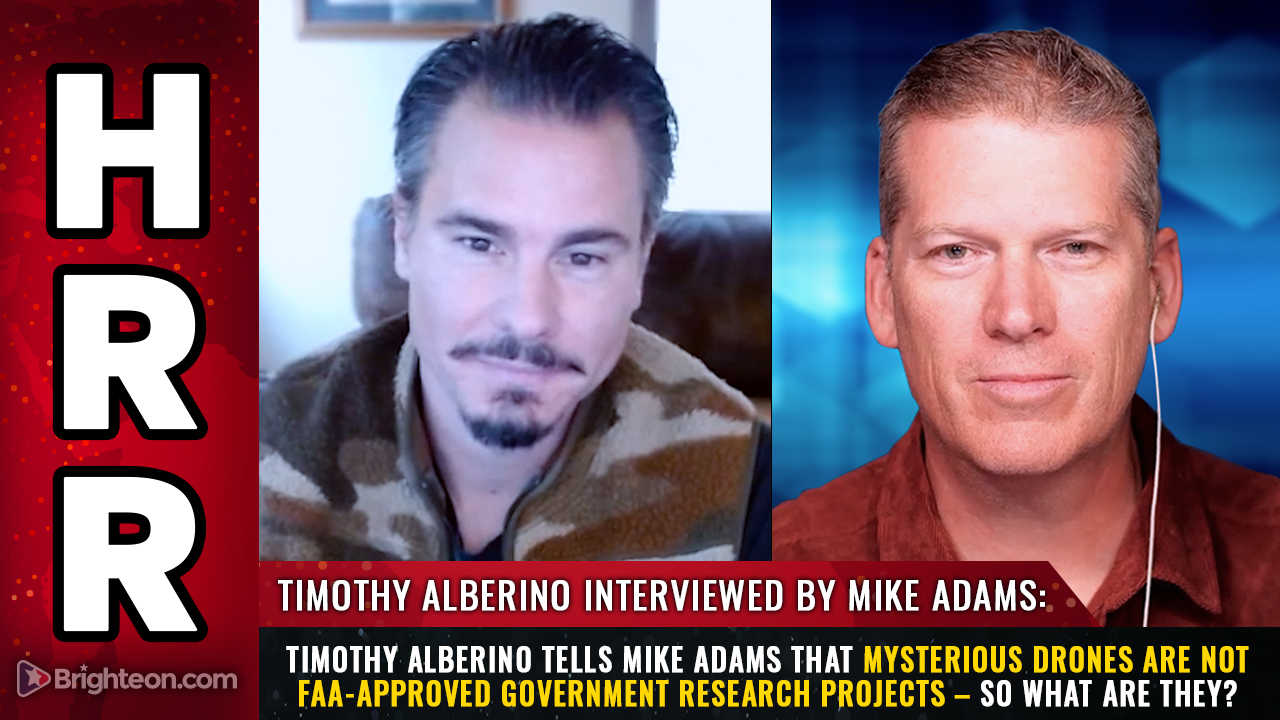 Parler
Parler Gab
Gab
- President Trump announced "Project Stargate," a 500 billion investment to build advanced AI data centers across the U.S., aiming to boost AI R&D and counter China's growing AI dominance.
- Tech Partnerships: Backed by OpenAI, SoftBank, and Oracle, the project seeks to accelerate AI advancements, though critics raise concerns about ethical risks and corporate influence over public safety.
- Ethical Concerns: Critics like Mike Adams warn against AI weaponization and corporate prioritization of profit, advocating for decentralized, open-source AI models to ensure transparency and public benefit.
- China’s AI Lead: China’s open-source AI models, such as DeepSeek, outperform U.S. systems, prompting debates over whether centralized U.S. efforts can close the gap or risk falling further behind.
- Decentralization Debate: While Project Stargate centralizes AI development, open-source models like Enoch aim to democratize knowledge, offering an alternative to corporate and government-controlled AI systems.
A Bold Move in the AI Arms Race
President Donald Trump has announced a monumental $500 billion investment in artificial intelligence infrastructure, dubbed "Project Stargate," aimed at establishing state-of-the-art data centers across the United States. The initiative, unveiled on January 22, 2025, is designed to accelerate AI research and development, positioning the U.S. as a global leader in the rapidly evolving AI landscape. Backed by tech giants such as OpenAI, SoftBank, and Oracle, the project seeks to address the growing concern that the U.S. is falling behind China in the race for artificial general intelligence (AGI). The announcement comes at a critical juncture, as China continues to make significant strides in AI research, releasing open-source models that outperform their U.S. counterparts in reasoning and efficiency. Critics, however, warn that the initiative could be weaponized by future administrations or corporate interests, raising ethical and security concerns.Tech Titans and Ethical Dilemmas
The partnership with OpenAI, SoftBank, and Oracle has sparked both optimism and skepticism. OpenAI, once hailed as a pioneer in open-source AI, has faced criticism for its shift toward closed, proprietary systems. SoftBank, a Japanese investment firm, brings financial muscle to the table, while Oracle’s involvement has raised eyebrows due to CEO Larry Ellison’s controversial vision for AI-driven healthcare. Ellison has claimed that Project Stargate could revolutionize cancer detection and treatment, proposing AI-powered blood tests and personalized mRNA vaccines. However, critics like Mike Adams, a tech maverick and developer of the open-source AI model Enoch, argue that such advancements could lead to dangerous outcomes. Adams warns against the weaponization of AI and the potential for corporate interests to prioritize profit over public safety. “Don’t inject yourself with AI,” Adams cautioned, emphasizing the risks of merging human biology with machine-driven solutions.Decentralization vs. Centralization: The Battle for AI Supremacy
While Project Stargate represents a centralized approach to AI development, Adams and others advocate for decentralized, open-source models that empower individuals and bypass corporate and government censorship. Adams’ Enoch, set to launch on March 1, 2025, is a free, open-source AI model designed to provide uncensored access to knowledge on topics ranging from natural health to emergency preparedness. China’s open-source AI models, such as DeepSeek, have already demonstrated superior reasoning capabilities compared to U.S. systems, which critics argue are hobbled by political correctness and corporate agendas. Adams contends that the U.S. must embrace decentralization to remain competitive. “China is contributing to the democratization of knowledge,” he said, “while U.S. models are censored to align with woke narratives.”A Race Against Time
As the U.S. embarks on Project Stargate, the stakes could not be higher. The initiative represents a bold attempt to reclaim America’s position as a global leader in AI, but it also raises profound ethical and strategic questions. Will the U.S. succeed in closing the gap with China, or will centralized control and corporate interests undermine its efforts? For now, the race to AGI continues, with China seemingly in the lead. As Adams put it, “Whoever achieves superintelligence first will dominate the world.” The question remains: Will that dominance be wielded responsibly, or will it usher in a new era of technological tyranny? Only time will tell. In the meantime, the release of open-source models like Enoch offers a glimmer of hope for those who believe in the power of decentralized knowledge. As the world braces for the AI revolution, one thing is clear: The future of humanity may well depend on who controls the machines. Watch this Jan. 22 episode of "Brighteon Broadcast News" as Mike Adams, the Health Ranger, talks about Trump's STARGATE project to attempt global AI Dominance. This video is from the Health Ranger Report channel on Brighteon.com.More related stories:
Project Stargate: CIA, DoD had a well-funded secret program aimed at developing psychic abilities Microsoft turning to NUCLEAR ENERGY to power its future data centers and AI projects U.S. must prioritize fossil fuels to secure AI dominance, says Trump’s energy chief Sources include: Brighteon.com Forbes.comMid-air collision near DC: Military helicopter and passenger jet crash leaves dozens dead
By Finn Heartley // Share
Trump plans to deport some illegals to Guantanamo Bay in massive expansion of detention facilities
By Lance D Johnson // Share
America on the brink of COLLAPSE after decades of systemic decline
By Arsenio Toledo // Share
Why can’t the left understand restrictions on immigration?
By News Editors // Share
Governments continue to obscure COVID-19 vaccine data amid rising concerns over excess deaths
By patricklewis // Share
Tech giant Microsoft backs EXTINCTION with its support of carbon capture programs
By ramontomeydw // Share
Germany to resume arms exports to Israel despite repeated ceasefire violations
By isabelle // Share










